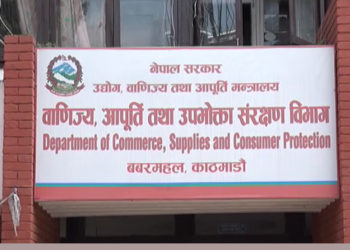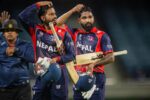Pursuing education from abroad and coming back to Nepal to contribute to its development has been my dream.
To fulfill this dream, I searched for opportunities to study abroad particularly in the UK for it has one of the most reputed universities in the world.
Every year the British government provides the Chevening Scholarships which is considered to be one of the most coveted and highly competitive scholarship awards.
The awardees receive tuition fees to complete their master’s degree program in the UK, monthly living allowance an economy class return airfare to the UK, and additional grants and allowances to cover essential expenditure.
I knew about this scholarship in 2016 through someone who was a recipient of a similar scholarship. The Chevening website mentions that they are looking for future leaders and influencers who have a strong academic background.
I was awarded the best graduating student from the Ace Institute of Management for excellence in my academics and leadership skills.
Being rejected was an eye-opener for me. We still live in a society where men are given so much more preference and organizations too back that up. If our generation doesn’t speak against such bias, who will?
At that point, I was already working as a Business Reporter in a leading English Language newspaper and publishing lead stories on tourism, business, and entrepreneurship. I also represented Nepal in the International Buddhist Conclave in India in 2016.
Further, I was the semi-finalist of Nepal’s Top 7 Debaters and had anchored Youth television Show on national television.
Moreover, I was also the Concept Director and Host of “Youth in Entrepreneurship”, an English language talk show aired in Radio Reeyaz. I was just 22 years old at that time.
In 2017, I first applied for the scholarship, I scored 7 in my IELTS and also got offer letters from two out of the three universities I had applied for.
I was shortlisted and reached the interview stage. However, I did not make it.
Despite, having a strong academic background and a huge potential to lead I was denied this scholarship. I reapplied the next year and again reached the interview stage.
I was confident and gave my best hoping that I would make it in the second year. However, I was rejected once more. I was shocked to see that the awardees were all men that year.
I was frustrated because I was not selected, but after witnessing it was only men who were selected for the scholarship from Nepal, I was disgusted.
All the men who got selected that year were qualified and deserving, and I do not hold anything against them. But coming this from an institution that promotes inclusiveness and works for women empowerment felt strange.
How can the concerned institution guarantee inclusiveness that is supposed to be its mission in Nepal when the outcome shows otherwise? I am no more frustrated for I couldn’t make it.
I am sure there were women who were equally if not more deserving who applied that year but not even one got selected and it is a shame.
Being rejected was an eye-opener for me. We still live in a society where men are given so much more preference and organizations too back that up. If our generation doesn’t speak against such bias, who will?
I did a lot of soul searching that year. I was devastated but I wasn’t tired. I still trusted the process and reapplied. I knew I had to work doubly hard to prove my worth. I applied for all the possible programs, seminars, professional networks that I came across and matched my ambitions.
I was selected out of 1800+ applicants to be a part of the US Embassy Youth Council in 2018/19. I was offered a place at Nepal’s leading Fintech Company where I am still working as Corporate Communications Manager.
I also completed my Masters in Business Studies from Tribhuvan University during this time. I did a lot of things in that year and then again applied for the scholarship.
I was confident to make it this year. I was dressed smartly and I gave the interview with ease. This time, Chevening did not reject me right after the interview but placed me as a reserved candidate.
But then, I don’t know why even this year I did not make it. Why the reading committee selected my essays out of the pool of applicants? I heard out of 500-600 applications, 50 make it to the interview stage.
How fair and just are other scholarships, grants, and job opportunities provided by similar agencies in the name of development, democracy and transparency?
I was selected not once or twice but thrice only to be rejected at the end. After applying for three times, and being rejected I have gained some key insights.
How can the concerned institution guarantee inclusiveness that is supposed to be its mission in Nepal when the outcome shows otherwise? I am no more frustrated for I couldn’t make it.
I have always excelled in academics and even professionally to date and I will continue to do so. This has left me wondering, “How fair is the Chevening Awards selection process?” Chevening is just an example.
How fair and just are other scholarships, grants, and job opportunities provided by similar agencies in the name of development, democracy and transparency?
This is not just a personal or lone case, since publishing this write-up on my personal blog, I have heard from dozens of capable youth who were denied opportunities just because they were not well-connected.
I am not against anyone, I know Chevening has supported many qualified scholars and future leaders some of whom I know personally.
Is not having political and diplomatic connections in Nepal our weakness?
I am questioning not just for myself but for thousands of other youth whose dreams shatter each year and like me, they don’t know why such things happen to them and are unaware of whose doors they shall knock to get their answers.









Comment